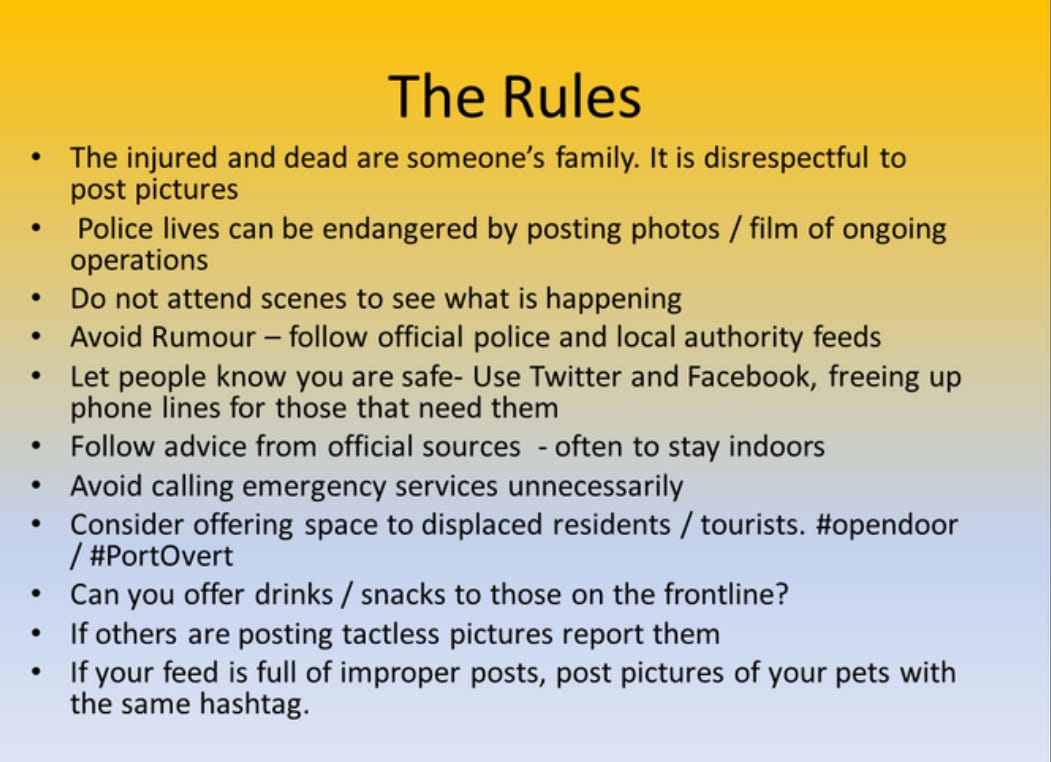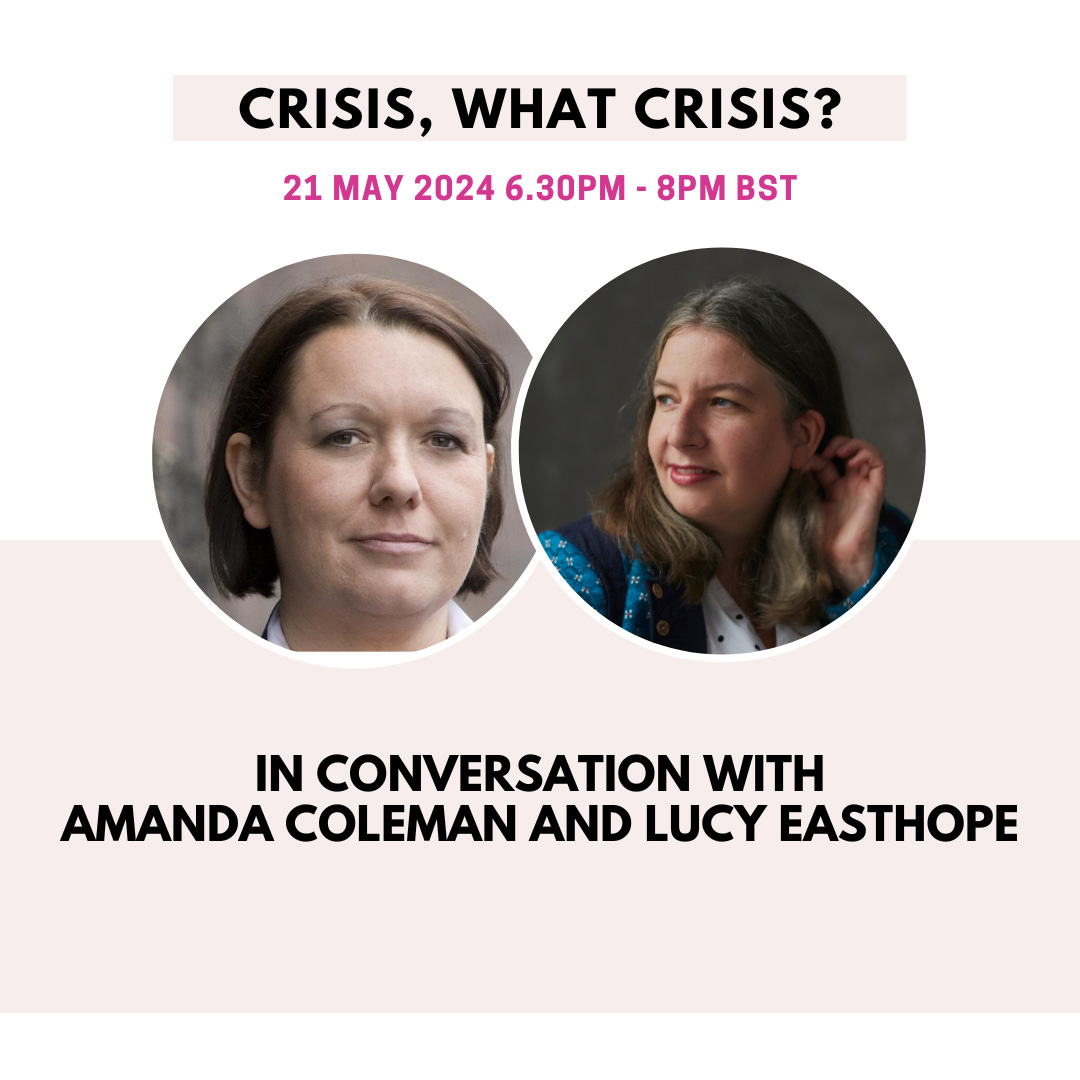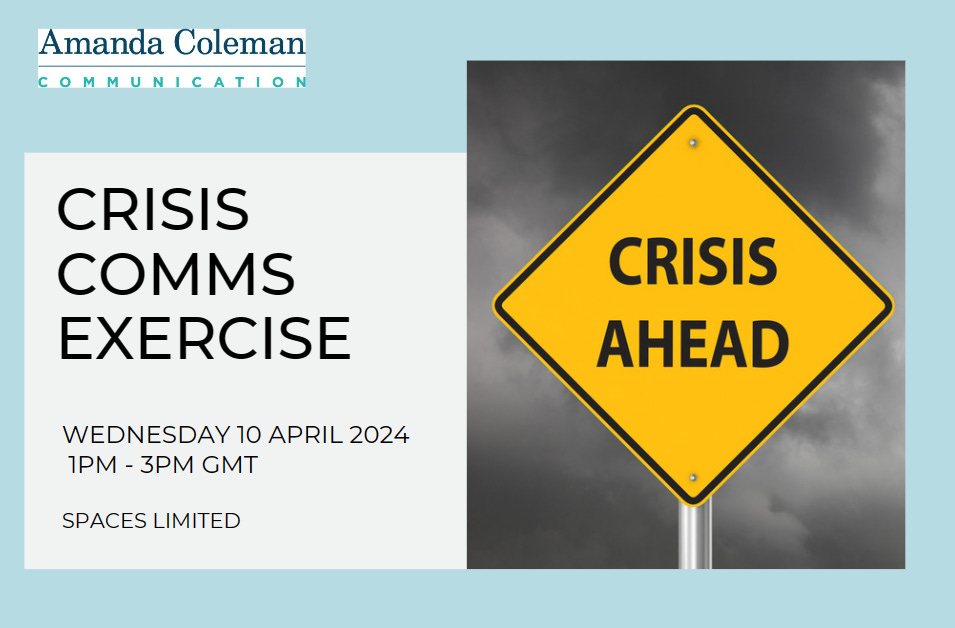Remembering the rules
There have been some terrible images circulating of the terror attack in Moscow. It has become the norm for the media to run images that some years ago would have been unthinkable. Social media has even fewer restrictions as people share the most horrific images. So what are the rules and what should they be if we are going to do the best for those caught up in emergencies and their families?
There was some discussion on social media and thanks to Stephen Hines for sharing some points early on in the reporting of the events in Moscow. See below:
The same points came to mind with the bridge collapse in Baltimore earlier this week where there was footage of the collision and the collapse. Every time I saw the footage I thought of all those people who were caught up and their families and friends who would also be seeing the footage almost as it happened.
It is not just the media who have to act responsibility it is something that we should be asking of everyone particularly in using social media. When people are recording events and uploading they need to consider what it shows and how would they feel if their relative was caught up in the disaster and they saw that video.
I realise that this is an uphill struggle but it is one that I will continue to try and highlight wherever I can. Organisations that are responding to emergencies, crises and disasters need to be aware of what images are circulating. This needs to be explained to families as well as understanding the impact the images may have.
Finally, all crisis communication plans should consider the management of images and what visuals the responders can release that would demonstrate the action being taken in a sensitive way.
In Conversation Event with Professor Lucy Easthope
A unique session with Professor Lucy Easthope and Amanda takes place on 21 May at 6.30pm. More than 200 people signed up in the first week to join the session that will be a conversation about crisis response, disaster management and communication. Lucy is a renowned disaster management expert and author of the bestselling When the Dust Settles.
Amanda runs a crisis communication consultancy and is the author of two books Crisis Communication Strategies and Everyday Communication Strategies. This relaxed conversation will share both the positive and the ugly moments dealing with some of the most significant crises in recent years. What is behind the approach they take? What are the biggest challenges? And how do they stay optimistic in the trying times? After the discussion there will be a chance to ask questions.
The event is free and takes place online. To register to join the session click here.
Exercising and Testing Crisis Plans
The importance of continued planning, exercising and testing ahead of any crisis was highlighted in a recent article on the Business Continuity Institute website. You can read it here. Being prepared and crisis ready is about more than just testing the mechanics of the response, it needs people to be ready.
A crisis requires responders to make lots of decisions based on limited information and in a limited timeframe. The next crisis communication exercise run by Amanda takes place on 10 April. It is two hours that will give the opportunity to work through a situation and consider what decisions and actions would be taken.
To find out more or book a space email office@amandacolemancomms.co.uk
In Brief:
The European AI Act will have an impact on the use of AI for crisis communication. Crisis expert Philippe Borremans covers the details in his Wag the Dog newsletter here. And the details of the AI Act can be found here.
An article in Public Relations Review considers crisis communication in cyberattack spillover events. It highlights the importance of situational factors in the response. Find out more here.
Social media has a key role to play in helping people to ‘navigate through and recuperate from’ emergency situations according to a Professor writing for Forbes. Find out more here.
The World Health Organisation has supported responders with the development of tools to support risk communication and community engagement. Find out more here.
An investigation has highlighted inadequate safety measures and communication between railway authorities in Greece. Read more here.
The April edition of the crisis communication case study Testing Times will be published on Tuesday 2 April. If you are on the circulation list you will receive an early copy. If you would like to be added to the list email amanda@amandacolemancomms.co.uk
Diary Dates:
On Wednesday 17 April Amanda will be joining Emma Duke to talk about managing crisis communication in an education setting for the CIPR Not for Profit group. Find out more about the lunchtime session here.
Amanda will be running an effective crisis communication workshop in Zurich, Switzerland on 19 April. It is part of a two day crisis communication bootcamp run by P World. Find out more here.




